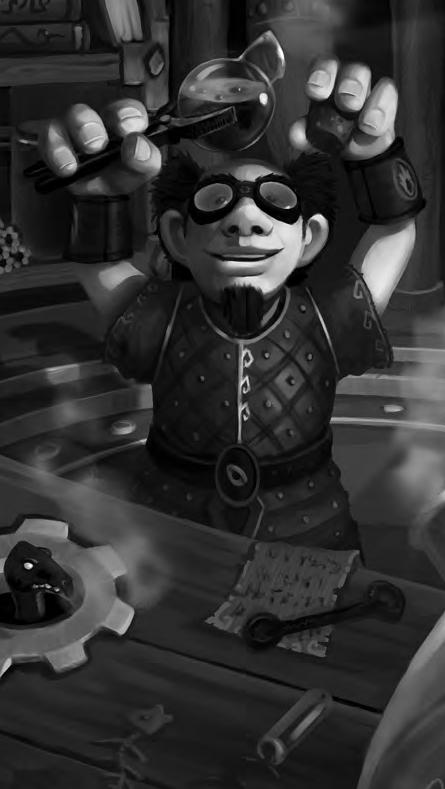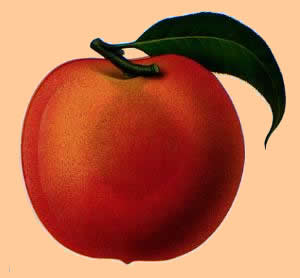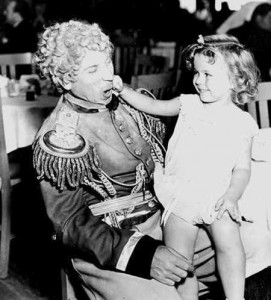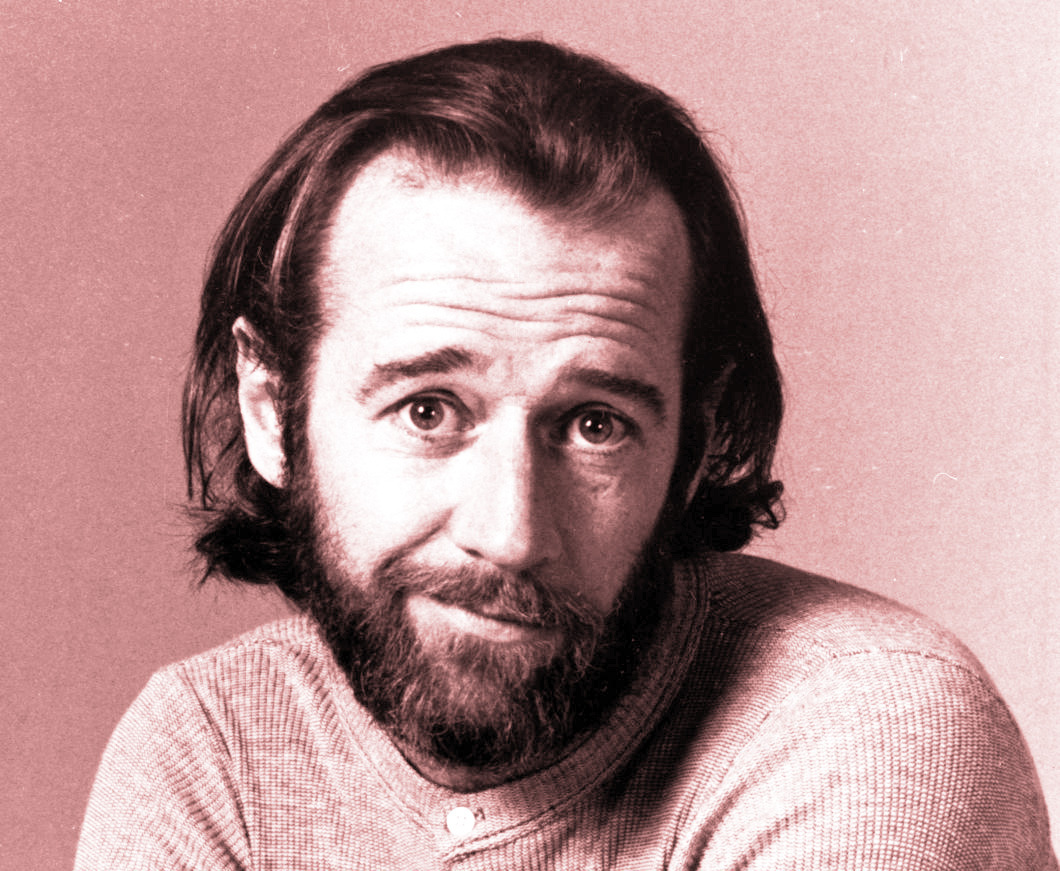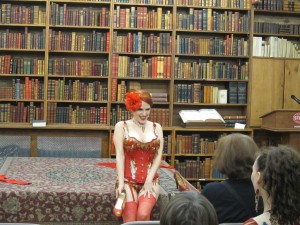Conceived & performed by the dancer herself!
Month: March 2014

To read on-line click here.
I’ve long been fascinated by the events surrounding the Jonestown tragedy. I’m particularly interested, as a parent, in what would lead someone to poison their own child. It seems unthinkable. And yet we all know it happened. So I was drawn to Children of Paradise, and I found the treatment of this very disturbing and real-life tragedy beautiful and compelling. The New York Times said, “D’Aguiar depicts the plight of Trina and the other children with heartbreaking immediacy.” So I sat down with its author, Fred D’Aguiar to talk about Jonestown, kids and how he wrote this wonderful book.
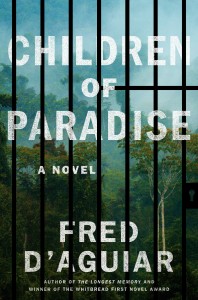
DAVID HENRY STERRY: What was your inspiration for writing a book about the Jonestown tragedy?
FRED D’AGUIAR: Jonestown happened in Guyana. My parents are Guyanese and I grew up there. I was in London when I heard about the murder suicides. In 1998, twenty years after the event, I wrote a long poem in an effort to understand why so many Americans ended up in such an idyllic landscape — the Amazonian basin interior of Guyana — only to die en masse. I made a radio program for the BBC about Jonestown in 2003 and it occurred to me that the psychology of faith had to be explored by me in a sustained work driven by character narrative rather than the lyric of the poem. I’ve been writing (and rewriting) the novel since then until now with breaks for poetry and plays, teaching and life. But don’t ask me about my failed novels — writers hate to air dirty laundry (this writer does).
DHS: You write from the perspective of a gorilla with shocking verisimilitude, how did you research the inner mental and emotional landscape of Adam the gorilla?
FDA: I’ve always believed that the danger of a reflex tendency for anthropomorphizing nature (of always seeing things in terms of our own primate and primary conceits) brings with it an over-assumption of empathy when all that is gained is a domestication of the unknown in terms of our limited, superior colonization instincts. We have an encounter but learn nothing from it. And not only a colonization of nature’s prowess in terms of our limited human understanding of it but a gesture of intuitive admission that nature has a language that we need to learn in order to really function in harmony with the planet. Right now our civilization is built on using up the earth and finding some other location for the future of the species (a stupid gamble, look at Las Vegas; think of Shelley’s poem <em>Ozymandias</em>). I’ve maintained my interest in nature writing from my first encounter with the works of Desmond Morris during my teens to the euphoric and vatic veneration of nature by Barry Lopez.
I wanted Adam (what’s in a name?!) to be the outside figure, in the commune locked in a cage but outside the commune’s reasons for being together, and in league with his Edenic surroundings as he witnesses a slice of humanity spiraling towards self-destruction. I’ve been to Jonestown and seen a bit of the landscape in the Amazonian region. The jungle with its rock escarpments, rivers, trees and waterfalls and flora and fauna, is a cathedral in its grandiosity (here I am anthropomorphizing but in keeping with the Romantics), it is a place of worship, a spiritual reliquary (if only we paid attention to it).
DHS: For that matter, how did you get into the mindset of a kid who was at Jonestown during one of the most unspeakable tragedies of the 20th century? And the POV of Preacher, who seems very much to be Jim Jones in this scenario?
FDA: I trained and worked as a psychiatric nurse way back in my early 20s and the work experience has remained with me ever since in the focus of my writing on the psychological and psychical aspects of a character’s experience. There are writers who have helped me to frame this in my fiction. First, Wilson Harris (b.1921). His fiction reacts to the landscape as if it were a structural determinant of his prose. Meaning, when you read him you feel as if the jungle’s architecture dictated his sentence structures. Harris is Guyanese and worked as a surveyor in Guyana’s interior and he wrote a 1996 novel titled <em>Jonestown</em>, which connects the tragedies in the jungle to a tradition of dying and sacrifice going back to antiquity, to Olmec Mayan times. Second, Derek Walcott. He handles imagery with metaphoric zeal. He ties the blood rhythms of thought to a sensuous instruction gleaned from our world. Three other seminal texts have been Alejo Carpentier’s <em>The Lost Steps</em> and Juan Rulfo’s <em>Pedro Marano</em> and Jean Rhys’s <em>Wide Sargasso Sea</em>.
DHS: You gave your novel the same name as a very famous film about the German occupation of France, why was that?
FDA: That happens to be my second most favorite film ever! The definite article in the title of the film means a lot. The sly mechanisms for defying despotism while it surrounds you, all rooted in art has to be instructive or my whole grain bread and peanut butter breakfast consumed this morning for its goodness is a cruel hoax. I wanted to connect with a former period of despotism in history and prompt the reader to think about children in history and how childhood is constructed and destroyed in turn and made anew by the experience of the arts.
Don’t laugh, but my first most favorite film ever happens to be one I got into in my early teens — <em>Roots</em>, the TV series. Yes! Don’t ask me why! Ask me why! Well, Alex Haley’s <em>Roots</em> (include the book as well) made me aware of the importance of knowing about black history and the necessity of art for a vital and examined life, and storytelling, character, landscape, emotion, intuition and persuasion as ethical frames for understanding (though puzzlement endures) and improving (though the work is never done) the world (and what a beauty it is) in a short life (and how prized).
DHS: Why do you think, in the end, people were willing to kill themselves and their children when their messianic leader told them to?
FDA: By the time the moment of murder-suicide arrived the people in the commune had experienced a prolonged period of indoctrination and torture (sleep deprivation, starvation and humiliation through public beatings and public shamings). They were at the end of their tether, nerves strung out, exhausted and ripe for manipulation. Add to that their isolation in Guyana’s jungle interior from the scrutiny of the outside world and the communards entirely subjected to the maniacal will of Jones. What was left of their will had been systematically eroded by Jones’ technique (think of Erving Goffman’s Total Institution) of repression to a point of hypnotic obedience (though it must be said that there was resistance by some to the bitter end as proved by the group that escaped by running into the jungle). They were told to drink or be shot, some choice.
DHS: Do you outline your plot before you start writing?
FDA: No. I began this lucky artsy-fartsy life that I now lead way back in my youth when I was a hungry and angry poet (hungry for meaning, angry for justice). As a result, I continue to write from a feel (mostly of terror) and a string of images (that play havoc with my nerves). The feeling is deeply linked to the imagery. Next, I find the people in the picture who might best exemplify that mood and exude the things that I am feeling. In the case of this novel the plight of the children attacked my nerves and left me wanting to replay their probable instances of childhood before their inevitable and painful deaths.
DHS: You are also a poet and playwright. How did poetry and writing for the stage affect writing <em>Children of Paradise</em>?
FDA: Poetry is the art of compression, of distillation; fiction appears to expand like an accordion pulled open limitlessly for a beautiful sequence of sound and meanings. Plays speak through characters on a stage in a suspension of real time for a dramatic carve-up of time as feeling and instruction. I crave instances of articulation in all mediums depending on my mood. I blame my multi-genre body on my experience of three landscapes, my birth and long residence in the UK, my childhood spent in Guyana and the adult realities of settling for life in the US.
DHS: You were teaching at Virginia Tech when a student went on a shooting rampage. What was that like, and how did this lead to you writing about Jonestown?
FDA: April 2007 was a nightmare for me. (I’ll count is as such until I die.) I lost a student who was in my Caribbean class. She was shot dead while in her French class. I happened to be on campus that morning. I have always loathed guns due to my residency in the UK where guns are blessedly rare. But after 2007 I am now so very much desirous of a ban on the possession of all firearms by private citizens — they belong to a primitive remnant of our warlike bodies. And we have a standing army anyway. I worry about the ready availability of personal firearms and the lack of respect for mental illness. It is a serious affliction in need of structural investment by this remarkable country. But what do I know? I think the education budget should be swapped with the defense budget.
DHS: Why do you think “drinking the Kool-Aid” has become part of our everyday vernacular?
FDA: It is a cruel misnomer extrapolated from Jonestown and one of the reasons why I wrote my novel to depict resistance rather than blind obedience to messianic sadism. We apply the term to denote a total surrender to an idea or force. In Jonestown there was resistance to Jones and that is why he needed a remote location and a regime of mental and physical torture that resulted in an erosion of the will of his followers. It seems as if the media has succeeded in its cookie-cutter way of leaving the popular memory with an unimaginative phrase to represent a tragedy. I took pains in my novel to chart the stages of this breakdown of the will of the community and I showed pockets of resistance to Jones as well. The cool aid was just the final act in a play of death, along with bullets, beatings, sleep deprivation, starvation and marathon sessions of Jones’s preaching that was recorded and relayed on speakers around the compound, all hours of the day and night. I wish it amounted to more than yet another example from recent history of a failed ecumenical tool.
DHS: After living with this story for so long, what are your final takeaways?
FDA: I quote as an epigraph, 1 Corinthians 13:13 and I stick with that. If I say it, people will hear the Beatles tune, “all you need is love” pah dap-pah, pah bah-dah, because it is so obvious that it precludes speech. But I’ll say it anyway for the record. Love (with cooperation) is a stronger (and preferable) force to hate (and competition). The evidence for the latter is technological advancement at a price of a dying planet… some advancement when we’ve mortally wounded the host of all species.
DHS: What advise do you have for writers?
FDA: First, Oscar Wilde’s adage that, ‘advice is an excellent thing not to follow but to disregard.’ Second, that they should read, read, read and get involved in something other than writing, and write, write, write. The arts of the imagination help us to understand the present and the past, and live coterminously with the planet and everything on it. Doing so should affect in positive ways what the future will be; not doing so merely accelerates our terminal decline. The literate imagination may well be our most powerful asset of our naturally inquisitive bodies and it is free. Go for it!
Fred D’Aguiar is an acclaimed novelist, playwright, and poet. He has been short-listed for the T.S. Eliot Prize in poetry for Bill of Rights, a narrative poem about the Jonestown massacre, and won the Whitbread First Novel Award for The Longest Memory. Born in London, he was raised in Guyana until the age of twelve, when he returned to the UK. He teaches at Virginia Tech. Children of Paradise is his newest novel.
David Henry Sterry is the author of 16 books, including <em>Hos, Hookers, Call Girls and Rent Boys: Professionals Writing on Life, Love, Money and Sex</em>, which appeared on the front cover of the Sunday New York Times Book Review. His new book Chicken Self:-Portrait of a Man for Rent, 10 Year Anniversary Edition</em></a>, has been translated into 10 languages. He is a finalist for the Henry Miller Award.
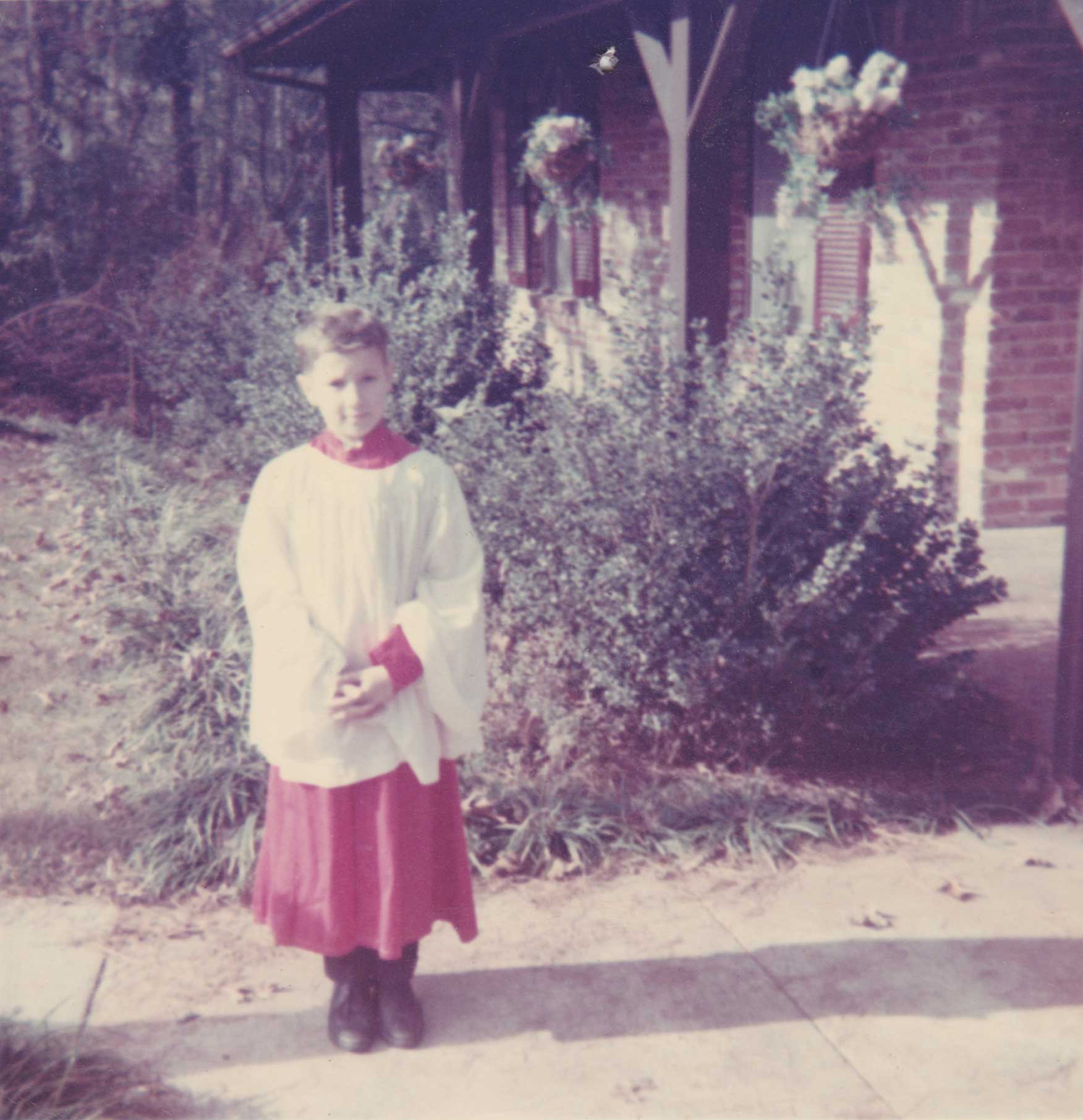
“Chicken: Self Portrait of a Young Man for Rent is a powerful account of a traumatized and confused young man’s very human response to rape and family dysfunction. But this memoir stands out because it is also a meditation on the darker undercurrents of a very American story: the son of immigrants making his own way in a new land. The main character navigates a recognizably American landscape, containing both innocence and puritanism: nuns and funny good girls as well as cynicism and decadence: pimps and cash-filled envelopes traded for sex. Through it all, Sterry tells a good story that will break your heart and make you laugh (sometimes at the same time) in this compelling and well-written book.” Books, Writing and Story
Find Chicken at your local independent bookstore: Indiebound Amazon
“I walk all the way up Hollywood Boulevard to Grauman’s Chinese Theatre: past tourists snapping shots; wannabe starlets sparkling by in miniskirts with head shots in their hands and moondust in their eyes; rowdy cowboys drinking with drunken Indians; black businessmen bustling by briskly in crisp suits; ladies who do not lunch with nylons rolled up below the knee pushing shopping carts full of everything they own; Mustangs rubbing up against muscular Mercedes and Hell’s Angels hogs. It’s a sick twisted Wonderland, and I’m Alice.”
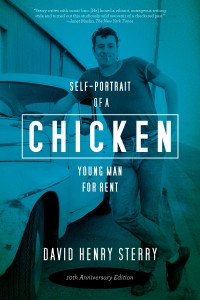 This is the chronicle of a young man walking the razor-sharp line between painful innocence and the allure of the abyss. David Sterry was a wide-eyed son of 1970s suburbia, but within a week of enrolling at Immaculate Heart College, he was lured into the dark underbelly of the Hollywood flesh trade. Chicken has become a coming-of-age classic, and has been translated into ten languages. This ten-year anniversary edition has shocking new material.
This is the chronicle of a young man walking the razor-sharp line between painful innocence and the allure of the abyss. David Sterry was a wide-eyed son of 1970s suburbia, but within a week of enrolling at Immaculate Heart College, he was lured into the dark underbelly of the Hollywood flesh trade. Chicken has become a coming-of-age classic, and has been translated into ten languages. This ten-year anniversary edition has shocking new material.
“Sterry writes with comic brio … [he] honed a vibrant outrageous writing style and turned out this studiously wild souvenir of a checkered past.” – Janet Maslin, The New York Times
“This is a stunning book. Sterry’s prose fizzes like a firework. Every page crackles… A very easy, exciting book to read – as laconic as Dashiell Hammett, as viscerally hallucinogenic as Hunter S Thompson. Sex, violence, drugs, love, hate, and great writing all within a single wrapper. What more could you possibly ask for? -Maurince Newman, Irish Times
“A beautiful book… a real work of literature.” – Vanessa Feltz, BBC
“Insightful and funny… captures Hollywood beautifully” – Larry Mantle, Air Talk, NPR
“Jawdropping… A carefully crafted piece of work…” -Benedicte Page, Book News, UK
“A 1-night read. Should be mandatory reading for parents and kids.” -Bert Lee, Talk of the Town
“Alternately sexy and terrifying, hysterical and weird, David Henry Sterry’s Chicken is a hot walk on the wild side of Hollywood’s fleshy underbelly. With lush prose and a flawless ear for the rhythms of the street, Sterry lays out a life lived on the edge in a coming-of-age classic that’s colorful, riveting, and strangely beautiful. David Henry Sterry is the real thing.” –Jerry Stahl, author of Permanent Midnight
“Compulsively readable, visceral, and very funny. The author, a winningly honest companion, has taken us right into his head, moment-by-moment: rarely has the mentality of sex been so scrupulously observed and reproduced on paper. Granted, he had some amazingly bizarre experiences to draw upon; but as V. S. Pritchett observed, in memoirs you get no pints for living, the art is all that counts-and David Henry Sterry clearly possesses the storyteller’s art.” – Phillip Lopate, author of Portrait of My Body – Phillip Lopate, author of Portrait of My Body
“Like an X-rated Boogie Nights narrated by a teenage Alice in Wonderland. Sterry’s anecdotes… expose Hollywood at its seamiest, a desperate city of smut and glitz. I read the book from cover to cover in one night, finally arriving at the black and white photo of the softly smiling former chicken turned memoirist.” -Places Magazine
“Snappy and acutely observational writing… It’s a book filled with wit, some moments of slapstick, and of some severe poignancy… a flair for descriptive language… The human ability to be kind ultimately reveals itself, in a book which is dark, yet always upbeat and irreverent. A really good, and enlightening, read.” – Ian Beetlestone, Leeds Guide
“Brutally illuminating and remarkably compassionate… a walk on the wild side which is alternatively exhilirating and horrifying, outrageous and tragic… Essential reading.” – Big Issue
“Visceral, frank and compulsive reading.’ –City Life, Manchester
“Sparkling prose… a triumph of the will.” -Buzz Magazine
“Pick of the Week.” -Independent
“Impossible to put down, even, no, especially when, the sky is falling…Vulnerable, tough, innocent and wise… A fast-paced jazzy writing style… a great read.” -Hallmemoirs
“Full of truth, horror, and riotous humor.” -The Latest Books
“His memoir is a super-readable roller coaster — the story of a young man who sees more of the sexual world in one year than most people ever do.” – Dr. Carol Queen, Spectator Magazine
“Terrifically readable… Sterry’s an adventurer who happens to feel and think deeply. He’s written a thoroughly absorbing story sensitively and with great compassion… A page-turner… This is a strange story told easily and well.” – Eileen Berdon, Erotica.com
“Love to see this book turned into a movie, Julianne Moore might like to play Sterry’s mum…” – by Iain Sharp The Sunday Star-Times, Auckland, New Zealand).

To read online click here.
A magical moment happens when a writer takes a deep breath and launches into a passionate one-minute elevator pitch of a book concept before hundreds of other would-be authors.
“It’s very touching,” says literary agent Arielle Eckstut about the emotion-charged atmosphere at Pitchapalooza. “These writers are wearing their hearts on their sleeves.”
Adds her writer-husband David Henry Sterry: “This is the first time some have said in public, ‘I’m a writer.'”
At the April 10-12 Erma Bombeck Writers’ Workshop at the University of Dayton, 20 randomly selected writers will get the opportunity to make a one-minute pitch — and perhaps write their own perfect ending. One winner, selected by Eckstut, Sterry and two other publishing experts, will receive an introduction to an agent or publisher appropriate for the book idea.
Welcome to Pitchapalooza, billed as the “American Idol for books, only kinder and gentler.” Since 2005, Eckstut and Sterry have taken Pitchapalooza to approximately 150 bookstores, writing conferences, book festivals and libraries — from Cape Cod and Chicago to the far-flung states of Hawaii and Alaska. It has drawn standing-room-only crowds and captured attention from The New York Times, Wall Street Journal, Washington Post, NPR and other media outlets.
“Our whole goal is to help people improve. There’s never a sense of humiliation,” said Eckstut, an agent-at-large with Levine Greenberg Literary Agency in New York and the author of nine books.
The event also illustrates the importance of tenacity. “In 2010 at LitQuake in San Francisco a woman pitched an idea for an anthology by American-Muslim women writing about their secret love lives,” Sterry recalls. “You could hear the murmur throughout the room. That pitch is a book waiting to happen, but an agent had dropped the idea.”
The lesson: an initial rejection doesn’t always determine a book’s fate.
“There’s a great expression, ‘Don’t quit five minutes before the marathon ends,'” says Sterry, who’s written 15 books himself. “I called up a publisher I knew, and it took about 10 seconds to sell that idea.”
The couple came up with the idea for Pitchapalooza after co-writing The Essential Guide to Getting Your Book Published and trying to figure out how to creatively promote their own niche book. They’re the founders of The Book Doctors, a company dedicated to helping authors get successfully published.
“We were at a party in San Francisco, and writers in the room heard the rumor there was a literary agent in the house. People started buzzing around Arielle like moths to a flame,” says Sterry with a laugh. “There were some great drunken pitches made that night. Later, we realized we might have hit upon something that could help us help writers and sell our own book.”
When the couple introduced Pitchapalooza at New York’s iconic Strand Book Store, “we thought it would be a terrible bust,” concedes Sterry. “We show up, and there’s a line out the door. We looked at each other and said, ‘What’s going on here?’ If it’s not Michelle Obama or a celebrity, it’s hard to get more than 15 or 20 people at a booksigning.”
Over the years, Sterry says they’ve heard “some amazing and some horrifying pitches.” One writer tried to pitch five book ideas in a minute. Another had an idea for a 30-book series. Another didn’t win at Pitchapalooza, but still ended up with a book contract.
“The writer was an arborist who had an idea that took off on The Elements of Style — only for fruit trees,” Eckstut says. “She had incredible expertise, and I knew just the right publisher.”
Writers don’t have to win or even participate in the Pitchapalooza contest to receive a professional critique of their book ideas. Eckstut and Sterry are offering writers who buy their book, The Essential Guide to Getting Your Book Published, a free 20-minute telephone consultation after the workshop.
The two offer these tips for making a great pitch:
1.When pitching a narrative, memoir or creative nonfiction, make sure you have a hero we can fall in love with.
2. Don’t tell us your book is funny. Make us laugh.
3. Compare your book to a successful one. Show us where the book fits on the shelf in a bookstore.
And finally, “Don’t say you’re the next Erma Bombeck,” Sterry says with a laugh.
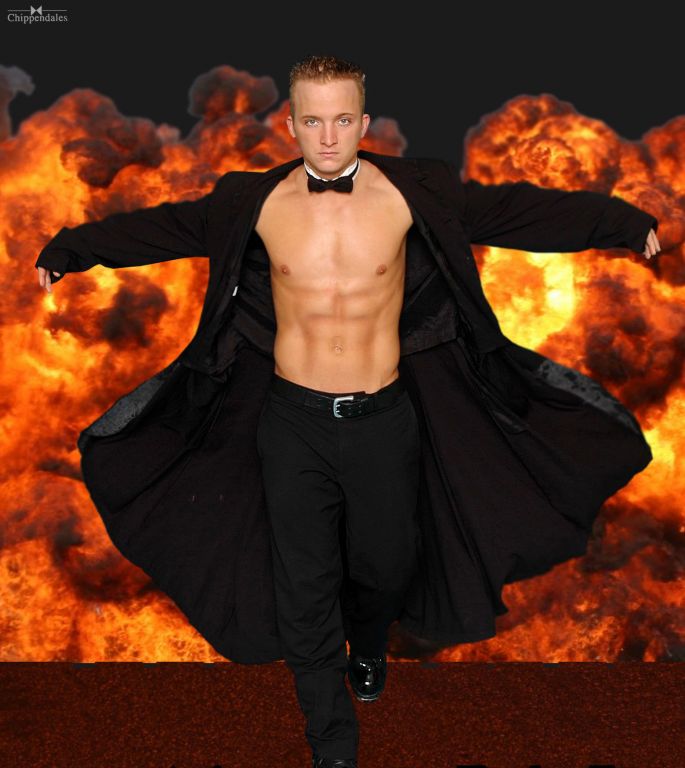
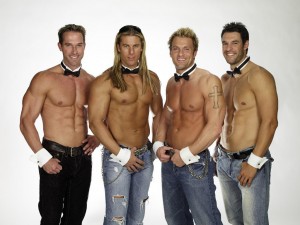 Rumors of the death of male stripping in America are greatly exaggerated. I know, because recently on a dark dank Saturday night, I took the Queen of LA Stripper Intelligensia, 5’10” Private Dancer/Nordic goddess Nica Jensen, to the seedy sweet scrotum of Hollywood, Arena Nightclub, Santa Monica & Highland, where The Hollywood Men were reportedly going to be shakin and bakin their moneymakers, while frenzied females shriek & wave seas of money for dick-filled lap dances. Needless to say, me and Nica are highly skeptical. We’re early.
Rumors of the death of male stripping in America are greatly exaggerated. I know, because recently on a dark dank Saturday night, I took the Queen of LA Stripper Intelligensia, 5’10” Private Dancer/Nordic goddess Nica Jensen, to the seedy sweet scrotum of Hollywood, Arena Nightclub, Santa Monica & Highland, where The Hollywood Men were reportedly going to be shakin and bakin their moneymakers, while frenzied females shriek & wave seas of money for dick-filled lap dances. Needless to say, me and Nica are highly skeptical. We’re early.
The club seats 500 people. So far there are only 7 lovely Latinas at one table, decked out in the height of East LA fashion. One wears a white wedding veil. One is in a wheelchair. They are already drinking heavily. Looks like we’re in for a long night. We’re greeted by Dan Remington, the emcee/part owner of The Hollywood Men. He’s a 16 pound bowling ball of a guy with slick hair and matching handshake, surrounded by a surprisingly nice smile. He is, and will remain, fully clothed, and is the only performer who will be able to say that. He tells us that December sucks, it’s the worst time of year, which is true in so very so many ways, in my opinion. You can see he’s a little worried that no screaming ladies are going to show up, and without them, it’s a very different show. But during the bachelorette season, Dan tells us, there are 500 women here 3 times a week, in fact they had to move here because they outgrew the last place. Guys come from all over the world to audition, if you’re interested just call, make an appointment, come down, one guy was just in last week from Europe, came all the way here to be a Hollywood Man. A kind of pilgrimage, I guess. Nica wants to know how many of the guys are gay. “NONE,” Dan Remington blurts a little too loud, then says softer, “None of the guys are gay. They’re not gay.” During the next 12 minutes he will tell us like nineteen more times how not gay all the guys are. Later Nica will say, “Me thinks the lady doth protest too much,” and I will laugh. Hard. Nica wants to know if any of the guys are married. We are told they are not. “They all have girlfriends,” Dan says, then leans in with a smile, “but almost all of them fool around.” Later Nica will tell me she has no trouble believing that, and I will laugh again, though not as hard this time. Nica wants to know where men sit if they want to watch. Dan tell us that no men ever come here to watch. In all these years, only one gay male couple came, and when they saw what the show was, they left. So none of the dancers or hosts or waiters are gay, and none of the audience is gay men. But what would happen, Nica wants to know, looking down at Dan, if a guy wanted to come and watch? “Well, we would sit him wherever he wanted to sit.” This satisfies Nica, which is a good thing, cuz you don’t wanna piss off Nica. Next we’re ushered into the dressing room to meet the brains and buns behind The Hollywood Men, the Sultan of Shwing, the King of the G-String, the dean of American male stripping, 1998 Playgirl Man of the Year, Scott Layne. If you called Central Casting and asked them to send over a male stripper, Scott Layne would show up. Even in sweats and a tank top, Scott exudes an utter American maleness, gunboats bulging, buff with mantan, hardbody with soft smile, chiselly cheeks with charmy eyes. I’ve known Scott since New York Chippendale’s, where we worked together, and he first became a star under the late great Nick de Noia, the Grand Daddy dandy of modern American male stripping. I’m happy to see him. And he me, apparently, as evidenced by the big bear hug he lays on me. Hug-wise I give as good as I get. Not in a gay way. I want to emphasize that. It’s a deeply heterosexual hug, the hug of men who’ve fought together in the trenches of the battle of the sexes, comrades in codpieces, me armed with roller skates, tux and microphone, Scott with the smallest G-string the law would allow. The show’s gonna start in half an hour, and I ask him if he’s nervous. “Why would you be nervous?” Scott and Nica answer at the same time. The mark of a true professional. Nica wants to know what the chances are of a woman buying a ticket, attending the show, and taking home a Hollywood Man. “Depends on how good looking she is,” Scott smiles. Sounds about right. Nica wants to know what Scott thinks turns a woman on. “For me, it’s all about sharp moves, quick moves, that are sensual and sexy without being graphic. I hate it when guys get graphic, that’s not what most women want to see. And I hate when dancers don’t pay attention to older women, to women who aren’t traditionally hot. Look, women are all about the chase. Men want to cut to the chase. Women love the tease in strip tease. Men are like, ‘Bend over and show it to me.’” Nica nods. Sounds about right. We’re ushered back out into the club, and glorioski, there are like a hundred women buzz-cocking around, power-drinking, primping, whispering, giggling, babbling in gaggles, a dozen white wedding veils waving like snow covered clouds drifting towards the land of Marriage. As the ladies chill, mill, and spill female hormones, half-nude spandexed cuffed and collared hunk Hosts hustle drinks and smear muscle-bulging flirtatious bodacious charm all over the women. All of a sudden this seems like it could be fun. The women seem like they’re already having a blast. With each other. Every little grouplet has the same kind of hair, the same kind of outfit, like different tribes, all with their own unique plumage. I don’t see one single woman here by herself. They are pack animals. Female strip clubs are loaded with lone wolves. Nica starts drinking. This is a good sign. She leans over and tells me that in a female strip club, if you say the girls are into having sex with each other, this is considered a very good thing. I tell her I think it’s the specter of a homophobic Puritanical low-touch erotophobic machocentric culture. Nica agrees. She chortles: “And for God’s sake, how do they know they’re not gay, what do they do, give them all some kind of gay test?” I laugh at that, too, as I imagine having to take a gay test: fashion sense, artistic ability, fellatio skills. More women are streaming in, and by Jiminy, there must be close to 200 women here. Me and Nica are impressed. Our waiter is cut, ripped, lean yet pec-heavy, hard-haired and ab-happy. It looks like it would hurt your fist if you punched his stomach. He doesn’t seem gay. He doesn’t really seem straight either. He seems kind of asexual to me. Like he’s a Ken doll, and if you took down his black Spandex, a smooth bump would be there. He seems like an accountant. Nica asks him if he dreamed of being a topless waiter when he was a kid. He laughs and says that he did not, that’s it’s a great part time gig. Nica asks him what he does apart from this. Turns out he is an accountant. Seriously. When he’s gone I ask Nica if she thinks he’s sexy. She looks at me like I’m stupid. “Not my type,” says Nica. “If there was some nerd here with glasses and a slide rule in his pocket, that would be more my speed.” Then all of a sudden, BOOM! lights go down, sound goes up, and Scott’s voice booms through the room: It’s Showtime. There’s smoke, there’s a big video screen, there’s crazy swirling lights, and when the first Hollywood Man busts onto the stage, a scream comes up from the ladies, a primal lioness roar that rattles my teeth, rolls through my bones, and lights up my balls like Chinese New Year, as I’m hot-wired right into all that grrrrl power. Nica looks over at me. She’s into it. The women are into it. She leans over and whispers: “There’s a lot of really beautiful women here, aren’t there?” I nod in agreement. There are. 5 Men pop out onto stage and do a hiphoppy Fosse meets Backstreet Boys choreography, and the women are up on their feet, like at a Southern Baptist church when the spirit lifts the congregation. Nothing like this in a female strip club. Big video presentation, clips of movies and local news segments featuring the Hollywood Men show, in front of all that tight seemless choreography. The men do take their shirts and pants off in the opening number, but not until they take off their jackets and shirts, unbuttoning and removing little by little. When they get down to their skivvies, the estrogen laden roar bounces off the walls. Now we’re into the numbers. Each is almost a Jungian American archetype: Top Gun, An Officer and a Gentleman, the Cowboy, the Fireman, the Vampire. They all start off with lots of costume, surrounded many times by other dancers. Slowly they take it off while lip synching, until they take down their underpants to reveal their teeny G-strings. When they get to this point, they all make the same move: they turn around and bend over, their asses shining like a big happy heartmoon. The women seem to love that. They writhe, they undulate, they simulate intercourse, poundpoundpounding into the floor. They pour oil on themselves. The men touch themselves on their covered penis areas quite a bit. The women seem to love that, too. But honestly, after a while, the perfect smooth hairless chestpecs and the perfect smooth hairless 6 pacs, and the perfect smooth hairless asses all blend one into the other. Mind you the women are great. They are so much fun to watch. I love how they enjoy the show through each other. Understand this: in terms of sexual orientation, I am 70%, 20% lesbian, and 10% gay, so this show is not, as has been pointed out repeatedly, intended for me. But I did 2 years at Chippendale’s when it was the hottest show in New York City, so I know my way around men taking their clothes off. Plus, that’s why I brought the lovely and talented Nica, because she likes men and finds them sexual. Plus she’s taken her clothes off in front of them for money, and she’s not ashamed to say so. Plus she’s watched a lot of men watching women take their clothes off. So after every act, I turn to Nica and I ask, “Was that hot? Did that guy turn you on? What that sexy?” Every time she shakes her head and says, “No.” It’s not that she’s having a bad time. She’s actually enjoying the show. It’s just that none of these beekcakey bodies is beaming out any real sexuality. That’s what it seems like to me, and Nica confirms this. Then Scott Layne comes out, and she sees why he’s a star. He’s Danny Zuko from Grease, ducktail, tight leather pants and jacket. Behind him on the screen is John Travolta playing Danny Zuko from Grease. The effect is cooly postmodern in a Warholian way. The movie icon duplicated by the live male stripper icon. And Scott pulls it off, the same cocky shy nice intense calm vibe beaming out of both of them, stripper as movie star. Only Scott actually sings. He’s got a mike, and he’s singing. At first I don’t believe it, because his rockabilly Elvis thing very good. But then there’s a little slip, and it clearly is him singing. Nica turns to me and she nods and says, “Wow, he’s really good.” And you can see it really isn’t the meat, and it’s really is the motion. It’s the power and the skill that comes from having perfected a craft, being able to channel the Sex muse effortlessly with talent. Scott blows the roof off the joint, as the women go gaga. Afterwards I ask Nica if she thought he was sexy. She hesitates. Thinking. “He’s really good. I really enjoyed him, he’s a total pro, the guy is really talented.” Next up comes a guy in a bad female wig and skirt, with balloons shoved down his feminine sweater. It’s as if Jerry Lewis has decided to become a male stripper. Nica is intrigued. To a hip hop Spike Jones-ish soundtrack, this guy does an old school burlesque silent comedy number. And he’s fucking funny. With amazing control of his body. Slowly the wig, sweater and skirt come off, and he’s sporting a goofy Clark Kent meets Devo wig, with a Superman shirt. He shifts the balloons from his chest to his crotch, magically transforming them from huge breasts into gigantic balls. And the guy is an astonishing mindbending breakdancing fool. Isolating his body and moving the parts independently of each other in freakishly funny bendability, in the great tradition of vaudeville eccentric dancers like Donald O’Connor, with the good looks and athletic muscular grace of Gene Kelly, all filtered through new millenium streetwise edgy urban modernism. It is a breathtaking performance. I ask Nica if he was sexy. Her eyes have gone a bit dreamy in the middle of her creamy round face, and she nods her head: Yes. Nica’s got a crush on the guy. I ask her why. She tells me it’s because he diffused the manufactured, corporate asexual vibe with HUMOR. That ironically, a nice dose of humanity is still what entices more than a shapely butt and a bulging G-string.
Now one lucky gal who wins a lottery gets to sit on a chair in the middle of the stage. 5 guys disrobe down to their wee G-strings and towels. Then they gather in a tight circlejerk formation around her, facing her, and appear to remove their wee G-strings while opening their towels and exposing their johnsons and willies to her. The audience goes nuts and bananas. I thought if I was surrounded by 5 beautiful women and they all exposed their nakedness at me, I would like to see that. That is probably a sight that I could work into a fantasy that I could masturbate to. In fact now that I’ve thought about it, maybe I will. Okay, I’m back.
Now all that remains is the up-close-and-personal, interactive, hands-on segment of the show, where the Hollywood Men actually come out into the audience, and the women wave the money, or plant in their cleavage, or in their panties peaking out from under their tight jeans. And I’m telling you, when they climb down from that stage like so many Collosuses of Rome, it is an absolute free-4-all. Unlike in a female strip joint, there are no beefy security guys to stop the clients from mauling the dancers. And the fur is definitely flying. There are at least 6 dancers, naked but for small black underpants, working the room. And I mean working. You hear little random screams and squeals and shrieks as little knots of females gather around dancers like menstrual blood clotting. Every veil-clad bride-to-be in attendance gets at least one lap dance, and most of them get many. The dancer generally comes over to the woman with the dollar bill flag flying (either held by herself, or more usually, her friends) and the dancer takes the bill, then undulates around and into the woman. Many breasts and necks are nuzzled. Male faces are buried into crotch areas. Female hands stroke and fondle and feel up smooth hairless powerful male chests and bellies, and grab a package or two. Sometimes a dancer literally disappears into a forest of females, so you couldn’t even see him anymore. The 7 Latinas who were the first ones in the place are whooping and halloring and dancing. I have to admit it’s great to see a woman dancing in a wheelchair. Then she gets a lap dance, and the guy is really great with her, sexy and nice and respectful. She’s digging it. Then the bride-tobe gets her own lap dance, and she digs it even more. I gotta say, the room is really hyper-charged with sexenergy. Next to me, a truly stunning woman has stuffed a bill in her thong panties peeking out from under her tight jeans. As she slides down onto the booth/chair, the bill disappears. She tried unsuccessfully to fish it out. He tries grabbing it with his teeth. With as little success. She unbuckles her belt, unsnaps her jeans and parts the zipper like it’s a pare of beautiful vaginal lips, revealing her stunningly sexy lower belly. The dancer hesitated, then goes down. He nibbles around the bill, then slowly and seductively pulls it out of the string of her thong thing. I have to admit I was jealous. I wanted to be that dancer. This moment illustrates the best of the audience participation section, what at Chippendale’s used to be called the Kiss & Tip. I did see a couple of the guys pull women’s hair, yanking heads into crotches with what I thought was too much force. Some women seemed to like that. Other seemed put off when the dancer moved away. Regardless, MUCH MUCH money exchanged hands, and MANY MANY hands roved over ACRES & ACRES of naked flesh. I wanted to give Nica the opportunity to have a lap dance if she was into it. I was curious what her reaction would be to getting one, having given so many herself. I asked her if she wanted one. She nodded enthusiastically. This is just one of the things we love about Nica. Guess who she wants a lap dance from? Funny wildly talented smiling sweet guy. Naturally. I have to admit I felt a little odd asking this guy wearing nothing but tiny black underpants if he would give my friend a lap dance, but only because all that gay talk before the show made me afraid I would disrupt the delicate balance of the show. Me, I don’t give a shit, I just want Nica to have her lap dance. So I find the guy and tell him what I want, and he’s the very model of accommodation. Nica gives him the money. The guy’s got curly brown soft hair, as opposed to the hard sculpted look of so many of the other guys. He looks her in the eyes as he pulsates and undulates rhythmically before her. She sinks down into her chair as he moves in closer and closer to her until his smooth supple rippling skin is inches from her lips. Nica seems to be really enjoying her lap dance. She puts her hands on his chest. He is gentle with her, but still seems capable of rocking her world. He is professional, but slightly removed, an amazing mover with a supple lithe physicality and a serious soulfulness, although he doesn’t seem emotionally engaged like he did on stage. He spends a good 5 minutes with Nica before he kisses her on the cheek and takes off. Nica’s cheeks are flushing and her eyes are alive. I ask her if she enjoyed her lap dance. She says she did.
Then it’s on to the big slam bang finale, and Scott’s bringing the show home. Everybody gets their bows and applause, and then the lights are coming up. I go over to the 7 Latinas who were the first ones in the place. Turns out the lady in the wheelchair is the mother of the woman in the white bridal veil. They’re laughing and carrying on and having a grand old time. Turns out the veiled bride-to-be is getting married next Saturday. Her boyfriend knows she’s here. He told her to go out and have a good time. That’s why she’s marrying him. She points out the dancer Nica has a crush on and says, “Tell him, ‘Oh my God!” Just tell him that for me. ‘Oh my God!’” Her mother in the wheelchair points to a picture of Scott. “Tell him that I’d like to take him home.” Everyone hoots and hollars. You can tell they’ll be telling this story for a very long time.
Me and Nica head backstage to the dressing room. Many men are in various stages of sweaty robing and disrobing. Nica sneaks peaks. Scott bounds over. I tell him how much I enjoyed his show, and how Nick his mentor would have been proud. Scott seems genuinely touched. Nica thanks him for a great show. Tells him what a great entertainer he is. It’s nice to watch, one pro to another, acknowledgment always meaning more coming from a peer. “I’ve been doing it long enough, I better be good at it,” Scott smiles with wry self-deprecation. “How long have you been dancing?” Nica wants to know. “Over twenty years,” Scott says. “Not bad for being 42 years old, huh?” Nica cannot believe Scott is 42. I can. Nica wants to know if we can interview her favorite dancer. Scott hooks us up. Chris Watters is his name. 2 T’s. With his clothes on he seems smaller. He’s well dressed casually, groomed, moving with an easy animal grace. He seems shy and earnest. He’s traveled all over the world dancing for women. He got his start Jane Mansfield style, only instead of at Schwabs, Chris was minding his own business dancing in a nightclub in Boise, Idaho, when a guy spotted him and recruited him into the male exotic dancing business. He’s currently running his own music production company, CMW Productions (cmwproductions.net) while going to school studying business administration. His parents are into him being a dancer. They’ve seen the show and they dig it. Nica wants to know what he’s learned about women taking his clothes off for them. He smiles and thinks. He’s a thoughtful guy who chooses his words carefully. “I see women from a totally different point of view. I see women at their worst, when they’re drunk and rude.” Pause. Thinking. “I put up a lot of walls.” Pause. Thinking. “Some dancing… table dancing, makes you feel creeped out… it’s too much… people cross boundaries. I like it a lot better when I can just get out on stage and do my thing. Women dancers are a lot more protected. It’s weird feeling like an object…” Pause. Thinking. “it makes you feel creepy… people can be so… I come home with scratches, and bruises, and bite marks, and I have no idea where they came from… it’s scary… sometimes rich women make you feel like shit, they think they can say anything they want, and they say cruel things, sometimes, they’re drunk, they look down their nose at me… it can get really ugly.” Pause. Thinking. “Like I said, I see women at their worst.” Nica wants to know if Chris is married. He confesses that he is. Me and Nica shoot each other knowing glances. The wife’s a gogo dancer. Not a stripper, he says a little too quickly. Like we’d care. But that’s part of this world, those fine lines that distinguish what you will do and what you won’t. Take off your clothes. Leave on your G-string. Sell a kiss. Let a customer touch you in your most tender netherparts. Selling your sexuality is a tricky thing, and the shading between trick and performer, john and gigolo, hustler and dancer is crucial for mental stability. You set your boundaries, and that is how you define yourself. A lot of male strippers at I worked with at Chippendale’s sold sex, but they would never call themselves a whore. Whereas, when I’ve worked with women from the next class of sex worker down the foodchain, the street ho, many embrace their ho-ness, “Yeah that’s right, I’m a ho, so you wanna fuck with me, I have got to get PAID!” Nica wants to know if he’s planning on having kids. God love Nica, she’s keeping us on track. Chris smiles that crazy sweet sexy shy smile: “Yeah.” I ask what he’d say if his son turned to him and said: “Daddy, when I grow up I want to be a male stripper!” “No way!” he laughs very loud. He’s got a nice easy laugh, which he’s laughed a couple of times, but this laugh is loaded with jaded cynical world-weariness. Nica wants to know why not. “Dancers get lazy. It’s too easy, the money. There’s no work ethic in this world.” He starts to say something, then hesitates, as if his internal censor stopped him. I ask him to elaborate, but he shies away. It makes him more interesting, that there is something withheld. Nica wants to know what he thinks women want. “Confidence with a smile. Even if you can’t dance, if you really have a good time out there, women like that. “ Pause. Thinking. Smile. “I try to use the golden rule. I do to others what I would want done to me.” Hard to argue with that. Nica shakes his hand. I shake his hand. Solid handshake. Single pump. Firm without having anything to prove.
As we leave Nica says what a sweet fragile soul he seemed, and confesses how she wants to rap him up in her arms and give him a big long hug, because he seems like he’s been so wounded. She’s surprised. She never thought guys would feel so much like she does about taking their clothes off for money. She reflects how heterosexual male stripping is more akin to the neo-burlesque movement that is sweeping the country, as opposed to the more anatomical direction female stripping has evolved into, where girls make a series of poses which illustrate what they would look like having sex. “If you can’t show them what you’d look like fucking, forget it, you’re not gonna make any money,” says Nica, and I can’t argue with that.
Then me and Nica walk out into the Hollywood night, where it’s not raining men, it’s just plain raining. And I can say without hesitation that male stripping is very much alive and kicking, kissing and tipping, every Friday and Saturday night in the City of Fallen Angels.

Weaving and gunning, he whipped it down Fell, timing it just right, so he hit the synchronized lights just as they changed, right on the edge of out-of-control. Divisidaro, Fillmore, Steiner flashed by: boom, boom, boom, George cruising Lili through each light as it turned green, one after another, like magic.
Out of the corner of his eye, he saw it coming, some big American junker-mobile running the light. That bastard’s gonna hit me, George thought, he’s gonna run that light, and he’s gonna hit me.
Imagine the smallest split of a second you can. Now split that an infinite number of times. That’s how long it took for George to think all that.
George’s eyes were wide as CD’s, utterly concentrated, totally focused. If he had not been, he would have died. If he’d had to, at this moment, he could have lifted a refrigerator off a loved one.
The driver of the American junker was drunk. His name was Ozwaldo Grzylwrsklnzwzykoski, aka Oz Grizzly. He had been drinking beer, then vodka, then beer, then vodka. He had somehow driven from Las Vegas, where he had been drinking with a relative who offered him a job breaking a man’s knees in Lodi, California. Oz was going to check into the Royal Viking Hotel, where he planned to dry out and have sex with several transgender sex workers. He actually should have been making a right turn, in which case this incident would have never happened. But he was so stoopid drunk, he ran the red, right at George, so blurred he couldn’t even focus on the steering wheel right in front of his eyes.
George lifted Lili’s front tire off the pavement. That, combined with the heavy screeching back-tire breaking, caused her to skid away from the Oz mobile.
Oz churned oblivious through the light, completely unaware he was perilously close to manslaughtering U vehicularly.
Lili seemed to be defying gravity itself as she flew sideways on Fell towards Market St.
And just as it looked inevitable that Lili was going to slam head first into the back panel of the passenger side of the Oz mobile, God seemed to intervene. Or maybe it was just George being all he could be.
Either way, George managed to get Lili to just clip the back of the Oz mobile’s passenger side bumper.
This stopped Lili’s forward momentum just enough so that with George flying forward at the same speed he had been, he flew over the handlebars down Fell St, head first.
Joseph Plantune, aka Joey, a homeless man who believed that aliens were coming for him imminently, looked up from the trash can he was mining, and saw a George flying through the air. He didn’t notice Lili or the Oz mobile. All he saw was the flying George. Head first. This caused Joey to sprint down Geary away from Fell, screaming, “You’ll never take me aliiiiiiiiiiiiiiiive!”
Holy shit, George thought, I’m flying through the air. With the greatest of ease. Hey, I’m even making a joke as I fly through the air. He seemed to fly forever, flying, floating parallel to the ground, headfirst. If only I had a cape, I could be Superman.
Then George realized he was gong to come down and hit the pavement. He did something smart now. Instead of thinking, he let his body take over. George was lucky that way. His body just naturally took over when it had to. When all around him were losing their heads he was inhabiting his body.
And his body, like most all bodies, knew exactly what to do.
And his body did it.
As it came down, George’s body naturally tucked, his shoulder rolling down towards the road, his helmeted head shielded by his right arm coming up, and as gravity took over, plummeting him towards blacktop, he landed on the flat of his forearm, rolling forward in a moving ball of humanity like a tumbler in thick black leather.
George’s body was all loosey-goosey, easy-jointed as it made contact.
And somehow he managed keep his roll going, as if he had been coached from an early age by a brilliant but cruel Rumanian gymnastic coach.
And when the roll was over, he popped up on his feet and stood there facing away from Geary St.
Stood on his two feet in his two boots.
Unscratched.
Unscathed.
Untouched.
Wait a minute, he thought, how did that happen? Did that happen? Did I just fly through the air, and do some crazy stunt man shit? How the hell did I do that? It wasn’t you, stoopid. That was God. God just saved me. Sent you a message. Do your job. Look after the boy. Thank you God, and I will not ever forget that you saved my life here. From now on, I do the right thing. Sex is highly over-rated. George made a note to himself: have that tattooed on your penis, young man.
Then he had a thought that moved him to action.
Lili.
Oh no.
Please God, just one more thing, I swear this is the last thing I’ll ever ask for: let Lili be okay.
George turned and ran back towards Geary.
There she was.
Lili.
Lying on her side.
Battered and bruised.
That beautiful old lady, scraped and scuffed.
He reached her, got down on his knees.
Put his hand on her, feeling for a pulse.
Oh please, be okay.
She’s dead.
What a night.
This is the worse night of my life.
I did this.
This is my fault.
If I had just minded my business and not been chasing my tail, he wouldn’t have gone skag hunting and Lili would be sitting under her cover where she belongs, having sweet Indian dreams.
Damn me.
Too late.
Somebody beat me to it.
George stroked her violated tank, gouged deep in the belly.
George ran his hands over her twisted front fender.
George let his fingers linger on her twisted handlebars.
George couldn’t bring himself to touch her scratched to hell forks, shock absorbed in shock.
Sadly he got himself to his feet.
With forlorn care, he lifted her to her wheels.
He slipped down her kick-stand and gingerly leaned her that way.
Lili groaned as her bent gnarled mass her rested on her stand.
She’s upright anyway, George thought.
He straddled her, without resting any way on her seat.
Looking at her handlebars was like seeing an injury victim with a badly broken leg, where the shinbone is pointing one way, and the foot is pointing the other.
Carefully, lovingly, George put his hands on her handlebars, and with the touch of an expert chiropractor, he pulled them back towards their natural resting place, like twisted a neck to bring it into alignment.
To George’s surprise, the handlebars moves easily back into place. In fact, they slid too far, so they were out of kilter the other way. Very easy he slid them back so they were centered.
Okay, George smiled, maybe it’s not so dire. Maybe she’s okay. Maybe we can coax her back to life. Maybe she’s just got a sprained hip and some minor contusions. Maybe there’s just a lot of blood from some superficial wounds.
George now dismounted and went to the front of Lili. He could now see that her front fender was bent badly, but if he was very tender with her, he could twist it back enough to be able to drive her, then take her to the shop and get her all shiny and new, like a virgin Indian touched for the very first time.
George took her into his hands and softly manipulated Lili, bending the metal so that it moved away from the tire. It did. It worked. It was an ugly raw wound, but at least it looked more normal now, and would not interfere with her smooth rolling.
George went back around and straddled Lili once more.
Barely breathing, he touched the key still hanging in its hole. He turned it into the Off position. He stopped and heaved a deep sigh.
I mean it Lord, if you give me this one thing, make this one thing okay, and I will never let you down again. Let her come one. Let their be light.
George switched the key back into the On position.
Wonder of wonders, miracle of miracles, she turned on, the front headlight shooting out a beam of white into the black night.
Okay, said George, that’s it, you win. From now on, no shit, it’s the straight and narrow for me, no bullshit.
George then calmly, moved the lever out for better access, and my his foot primed her a couple of times, while giving her a little taste of gas with the hand accelerator.
He snorted three quick blasts of breath, and kicked down on the lever.
Lili sputtered and spurted, like a heavy smoker trying to wake up in the morning.
But George nursed her into consciousness by opening the choke on the left of the engine, pulling out the knobby pin so the engine gasped air and gas and the pistons sprung to life, pumping like porn stars as Lili finally righted herself and purred.
Oh Lord, thank you, now I know everything’s gonna be alright, George thought.
And he really believed it.
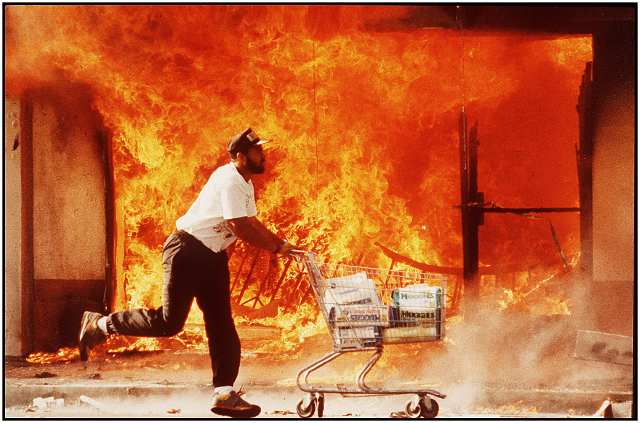
It’s raining acid cats and three headed dogs
Long live the rat with the monkey on its back
Rock candy and salt water taffy and daffy
And goofy and dopey and dopey and dopey
Feel the heat fell the heat can you fell it can you fell it
Amerika amerika god shed her tears on me
Shining shoes singing blues
From sea to stinking
See dick run see dick jump see dick bust his hump
In the slick black snotrag sea the oilcan tinman catch me
If you can man she sells seashells and rusty needles
Bythe eyeshore seashore while the dirty old whore takes it in
The backdoor of the hardcore store
Feel the heat fell the heat can you fell it can you fell it
Gotta rambo mojo hunnerd dollar haircut
But hey baby I feel good I‘m a specimine jar
I’m a movie star I’m a nuclear freeze a nuclear sneeze
Do what I please
I throw money away almost every day O say can you see
The hole in my arm I’m a five alarm fire a live wire
Tell me why only the bad die old how come it’s so cold
In the kinder gentler slasher mad world yo girl
And the cock fights the missile sights
The pagan rites
I’m laughing my ass off
While Rome burns
Feel the heat fell the heat can you fell it can you fell it
Is it just me or is it hot in here?

“Snappy and acutely observational writing… It’s a book filled with wit, some moments of slapstick, and of some severe poignancy… a flair for descriptive language, and a fine knack with expertly told little escapades… The human ability to be kind ultimately reveals itself, in a book which is dark, yet always upbeat and irreverent. A really good, and enlightening, read.”
— Ian Beetlestone, Leeds Guide
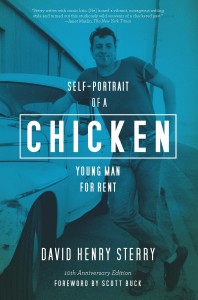 Chicken: Self-Portrait of a Young Man for Rent, Ten Year Anniversary Edition
Chicken: Self-Portrait of a Young Man for Rent, Ten Year Anniversary Edition
“Ten years ago, this debut memoir from Sterry burst upon the literary scene with an energy and inventiveness that captured his little-known subject matter—teenage life in Los Angeles as a rent boy working for a benevolent pimp named Sunny whose “rich, generous, horny friends,” Sterry explains, “pay good money to party with a boy like me.” Now back in print, Sterry’s memoir still crackles with its unsparingly honest approach: “I catch myself in the mirror, seventeen-year-old hardbody belly, pitprop legs, zero body fat, and huge hands. I’m seduced by the glitter of my own flesh.” Scenes from Sterry’s early dysfunctional family life not only add pathos to this tale of fall and resurrection but assure readers that he never sees himself as better than his clients, such as Dot, the wealthy 82-year-old, whose only desire is to experience cunnilingus for the first time—a desire that Sterry readily fulfills. “Even though I have no home and no family except for a bunch of prostitutes and a pimp, even though I have no future… at least I’m good at this.” (Oct.) – Publisher’s Weekly
Find Chicken at your local independent bookstore: IndieboundAmazon
“I walk all the way up Hollywood Boulevard to Grauman’s Chinese Theatre: past tourists snapping shots; wannabe starlets sparkling by in miniskirts with head shots in their hands and moondust in their eyes; rowdy cowboys drinking with drunken Indians; black businessmen bustling by briskly in crisp suits; ladies who do not lunch with nylons rolled up below the knee pushing shopping carts full of everything they own; Mustangs rubbing up against muscular Mercedes and Hell’s Angels hogs. It’s a sick twisted Wonderland, and I’m Alice.”
This is the chronicle of a young man walking the razor-sharp line between painful innocence and the allure of the abyss. David Sterry was a wide-eyed son of 1970s suburbia, but within a week of enrolling at Immaculate Heart College, he was lured into the dark underbelly of the Hollywood flesh trade. Chicken has become a coming-of-age classic, and has been translated into ten languages. This ten-year anniversary edition has shocking new material.
“Sterry writes with comic brio … [he] honed a vibrant outrageous writing style and turned out this studiously wild souvenir of a checkered past.” – Janet Maslin, The New York Times
“This is a stunning book. Sterry’s prose fizzes like a firework. Every page crackles… A very easy, exciting book to read – as laconic as Dashiell Hammett, as viscerally hallucinogenic as Hunter S Thompson. Sex, violence, drugs, love, hate, and great writing all within a single wrapper. What more could you possibly ask for? -Maurince Newman, Irish Times
“A beautiful book… a real work of literature.” – Vanessa Feltz, BBC
“Insightful and funny… captures Hollywood beautifully” – Larry Mantle, Air Talk, NPR
“Jawdropping… A carefully crafted piece of work…” -Benedicte Page, Book News, UK
“A 1-night read. Should be mandatory reading for parents and kids.” -Bert Lee, Talk of the Town
“Alternately sexy and terrifying, hysterical and weird, David Henry Sterry’s Chicken is a hot walk on the wild side of Hollywood’s fleshy underbelly. With lush prose and a flawless ear for the rhythms of the street, Sterry lays out a life lived on the edge in a coming-of-age classic that’s colorful, riveting, and strangely beautiful. David Henry Sterry is the real thing.” –Jerry Stahl, author of Permanent Midnight
“Compulsively readable, visceral, and very funny. The author, a winningly honest companion, has taken us right into his head, moment-by-moment: rarely has the mentality of sex been so scrupulously observed and reproduced on paper. Granted, he had some amazingly bizarre experiences to draw upon; but as V. S. Pritchett observed, in memoirs you get no pints for living, the art is all that counts-and David Henry Sterry clearly possesses the storyteller’s art.” – Phillip Lopate, author of Portrait of My Body – Phillip Lopate, author of Portrait of My Body
“Like an X-rated Boogie Nights narrated by a teenage Alice in Wonderland. Sterry’s anecdotes… expose Hollywood at its seamiest, a desperate city of smut and glitz. I read the book from cover to cover in one night, finally arriving at the black and white photo of the softly smiling former chicken turned memoirist.” -Places Magazine
“Snappy and acutely observational writing… It’s a book filled with wit, some moments of slapstick, and of some severe poignancy… a flair for descriptive language… The human ability to be kind ultimately reveals itself, in a book which is dark, yet always upbeat and irreverent. A really good, and enlightening, read.” – Ian Beetlestone, Leeds Guide
“Brutally illuminating and remarkably compassionate… a walk on the wild side which is alternatively exhilirating and horrifying, outrageous and tragic… Essential reading.” – Big Issue
“Visceral, frank and compulsive reading.’ –City Life, Manchester
“Sparkling prose… a triumph of the will.” -Buzz Magazine
“Pick of the Week.” -Independent
“Impossible to put down, even, no, especially when, the sky is falling…Vulnerable, tough, innocent and wise… A fast-paced jazzy writing style… a great read.” -Hallmemoirs
“Full of truth, horror, and riotous humor.” -The Latest Books
“His memoir is a super-readable roller coaster — the story of a young man who sees more of the sexual world in one year than most people ever do.” – Dr. Carol Queen, Spectator Magazine
“Terrifically readable… Sterry’s an adventurer who happens to feel and think deeply. He’s written a thoroughly absorbing story sensitively and with great compassion… A page-turner… This is a strange story told easily and well.” – Eileen Berdon, Erotica.com
“Love to see this book turned into a movie, Julianne Moore might like to play Sterry’s mum…” – by Iain Sharp The Sunday Star-Times, Auckland, New Zealand).
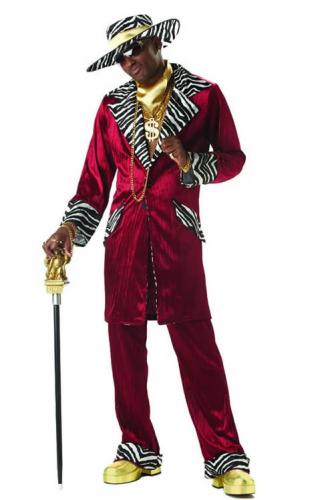
Master writer RJ Martin Jr. tells how a pimp is made. From Johns Marks Tricks & Chickenhawks. To buy the book: http://amzn.to/Yg0Lp8
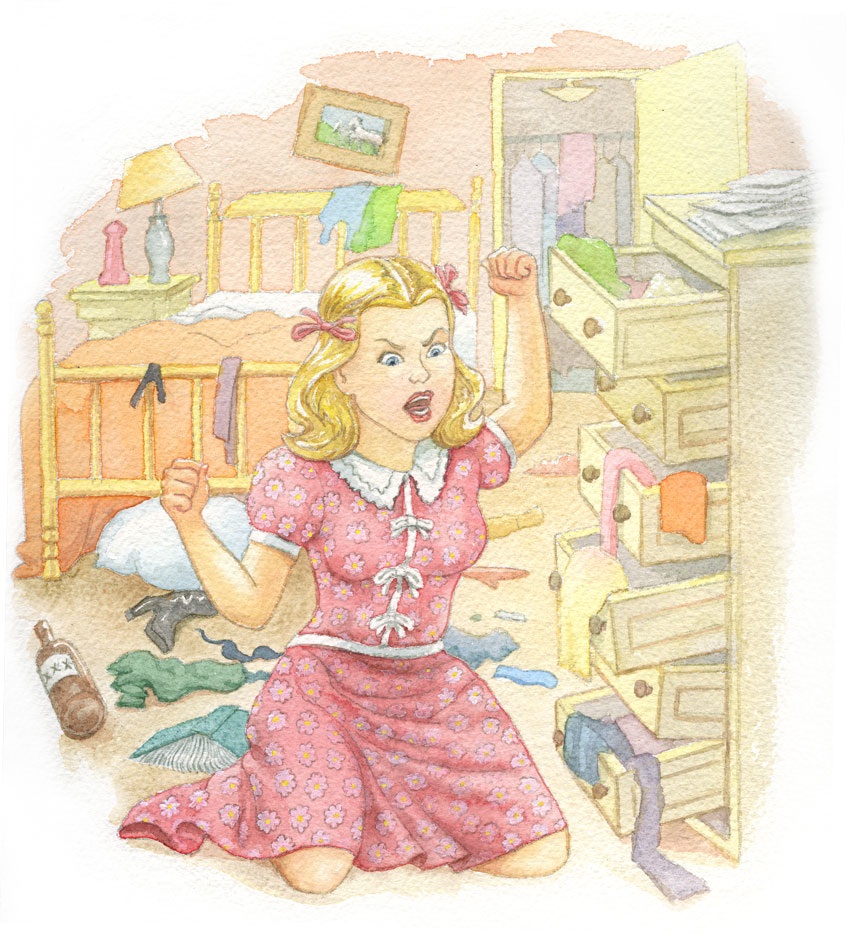
Dolores Has Lost her Clitoris
words: d h sterry pictures: peter seward
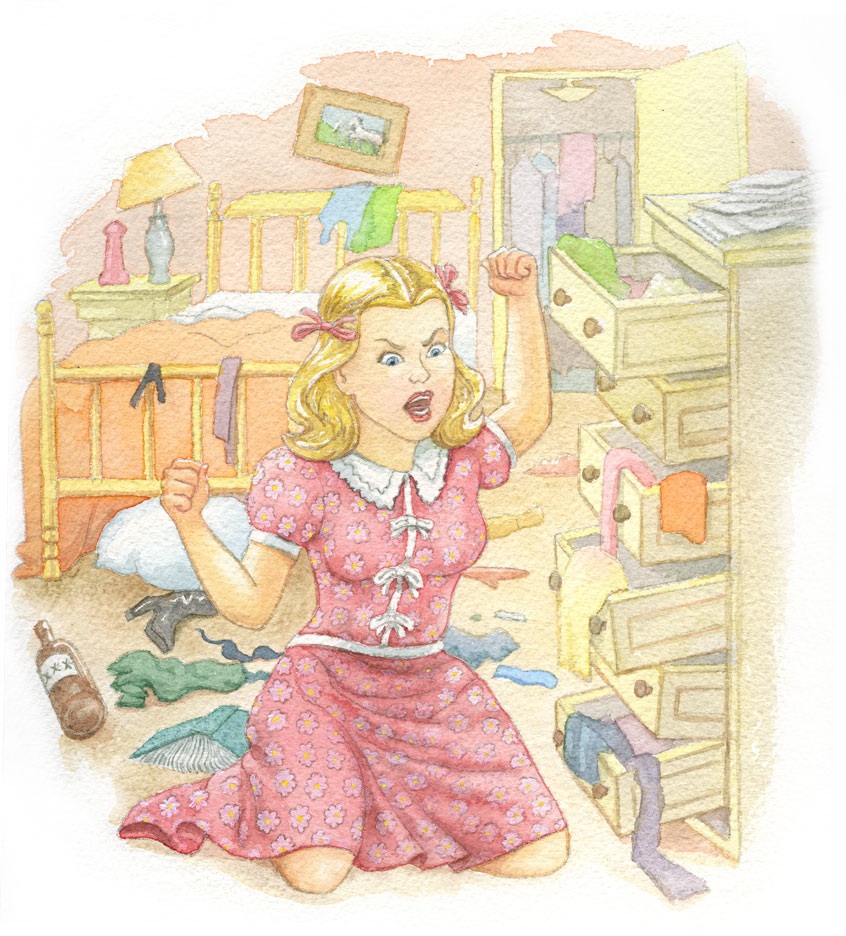
One Saturday morning Dolores
Discovered she’d lost her clitoris.
“Oh no! Oh my! Oh how can this be?”
“I can’t believe this is happening to me.”
Her breath got short and her eyes grew wide
She felt all wobbly and shaky inside
So she looked in her pockets and behind the door
She looked in each and every drawer
She looked in her sofa and under her chair
She even looked under her underwear
She looked in her pots and looked in her pans
Looked in the cabinet with all her cans
She looked in her closet and under her shoes
She looked in her cabinet next to the booze
She looked under her bed and under her pillow
Looked in the nightstand next to her dildo
She turned the house upside down
But her clitoris was simply nowhere to be found
She clenched her fists and fell to her knees
“Help me!” she yelled, “help me please.”
So she dashed out to see her boyfriend
Sure that he’d help make her misery end
“Oh please won’t you help me Boris,
“I’m afraid I have lost my clitoris!”
A blank vacant look came over his face
As he stared off into outer space
“Hhm…” said Boris, “to be honest Dolores,
“I didn’t even know you had a clitoris.”
Dolores shook her head and rolled her eyes
She gritted her teeth and let out a sigh
“Boris,’ she said, “I’ve had it with you
“Once and for all, we’re through!”
“I’m afraid,” said Boris, “I’m a little perplexed.
“Does that mean you don’t want to have any sex?”
“Of course not,” she cried, “I don’t wanna have sex.
“I just broke up with you, you’re my now ex.”
“And besides, why would I?” yelled Dolores.
“I just told you I lost my clitoris!”
She got so mad she stomped on the floor
And on her way out she slammed the door
Then she went to her parents and rushed inside
“Mother I’ve something I must confide
“I’m going crazy,” cried Dolores,
“Mom, I’ve lost my clitoris.”
Her mom looked away and her face got red
She looked like she would rather be dead
“I’m sure I don’t know what you’re talking about,
“And I just remembered I have to go … out.”
Her mom grabbed her coat and ran out the door
Got in her car and away she did roar
Dolores dashed off to speak to her father
Who was polishing his balls in the billiard parlor
“Dear Father,” cried Dolores
“Please help me, I’ve lost my clitoris.”
“Clitoris,” he muttered looking up from his balls,
“That word’s not familiar, not familiar at all.”
“Please tell me, my darling Dolores,
“What does it mean, this word ‘clitoris’?”
“Aargh!” cried Dolores, “you haven’t a clue!”
Then out of the room like a flash she flew.
She sped back home and jumped in her bed
And into her pillow she buried her head
Then Dolores cried and cried and cried
Till it felt like there was nothing left inside
Then Dolores fell into a long black sleep
That was terribly terribly terribly deep
And when she awoke she was no longer vexed
Confused upset peeved or perplexed
Dolores stretched and sighed and yawned
As the birds sang in the beautiful dawn
When she ran her hands down to her thighs
Dolores got a tremendously surprise
Right there in her very own lap
Her clitoris was waking from a long long nap
“Come play with me,” cried her clitoris
“Come play with me dear Dolores.”
“There you are,” she cried ecstatically
“Oh, I’ve missed you so terribly.
“I vow,” cried Dolores, “that every day
“You and I will find time to play.”
“I’ll never take you for granted again
“From now on you’ll be my very best friend!”
“Oh joy!” cried her clitoris, full of glee
“Now come play with me immediately.”
It was a beautiful reunion for Dolores
And her sweet devoted clitoris
Together they found heavenly rapture
And they lived happily ever after
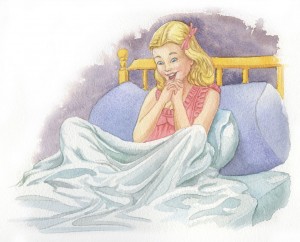 “There you are,” she cried ecstatically
“There you are,” she cried ecstatically
“Oh, I’ve missed you so terribly.”
“I vow,” cried Dolores, “that every day”
“You and I will find time to play.”
“I’ll never take you for granted again
“From now on you’ll be my very best friend!”
“Oh joy!” cried her clitoris, full of glee
“Now come play with me immediately.”
It was a beautiful reunion for Dolores
And her sweet devoted clitoris
Together they found heavenly rapture
And together they lived happily ever after

The Chicken Clucks Defiant: A book review of Chicken: Self-Portrait of a Young Man for Rent, by David Henry Sterry (to buy book click here)
Ann Lucas
San José State University
San José, California
As the subtitle of David Henry Sterry’s Chicken suggests, this book is a memoir of the author’s year working as a teenaged prostitute. At the age of 17, having arrived in Los Angeles to start college, Sterry found himself homeless when planned living arrangements fell through. In short order he was lured into a stranger’s home, raped, and robbed of his last twenty-seven dollars. Escaping, Sterry was offered refuge and a job by the manager of a fried chicken restaurant. In what Sterry now recognizes as a great cosmic joke, his boss also happened to be the purveyor of human chickens (i.e., a pimp); leaving fast-food wages behind, Sterry soon was charging $100 per hour for his services. His encounters with the colorful, seedy, bizarre, enterprising, desperate, and pathetic who lived on both sides of respectability in 1970s Southern California provide a framework and narrative thread for Sterry’s recounting of how his year in sex work affected him materially, emotionally and interpersonally. Throughout the book, Sterry’s accounts of assignations with clients and dilemmas in balancing his identities as rent boy and college student are interspersed with his childhood memories of growing up in an English immigrant family which is slowly falling apart. These episodes from his childhood and adolescence help provide a context, if not necessarily a cause, for his outlook on life and his foray into sex work. The book concludes with his decision to leave the sex industry.
The writing style in Chicken is brash and engaging. Reminiscent of “gonzo journalism” and Lewis Carroll, Sterry’s style includes vivid descriptions (“Frannie, perched like an anorexic bird in the plumage of her couch”) (p. 33), trenchant metaphors (Sisyphus and leaky buckets), creative compound words (“nuthugging elephantbells”) (p. 6 and passim), and a taste for alliteration (“black businessmen bustling by briskly”) (p. 6). Yet the book is more than just flashy, over-the-top recounting of colorful anecdotes. Rather, Sterry’s writing style serves his substance well, clearly evoking the milieu of 1970s sexual-revolution-era Hollywood and giving the reader a definite sense of his personal style and character as a lost but resourceful late-adolescent. At the same time, the book is visceral and brutally honest about Sterry’s emotional and physical ordeals during his year as a sex worker. He expresses both sympathy and anger for his clients; in regard to his own behavior, he is subtly introspective, smoothly moving between an account of his feelings at the time and a retrospective evaluation of his actions and motives. While his account does not appear to temper the meanness, sadness or vapidity of many of his customers, he does not shrink from reporting his own failings, either. For example, his recounting of his displaced rage on the basketball court is unflinching and heartbreaking (pp. 181-185).
Sterry’s book reflects the truism that experiences shape perspectives. His views of his year as a “chicken” reflect, among other things, his age at the time, the circumstances in which he began the work (voluntarily, but also with some sense of desperation), his feeling of parental rejection and need for love, his recent sexual assault, his interactions with others, as well as the tenor of the times and his location. Thus, despite the fact that many young people are rejected by their parents, find themselves on the streets, and engage in prostitution, this Chicken is not an “everyman chicken,” but rather an account of a unique person in a unique situation.
That said, Chicken can also be placed in a larger literary and socio-cultural context. Sterry’s memoir is important for many reasons, one of which is that it is the first account of a young male prostitute working primarily with a female clientele. We have several examples of memoirs and lightly fictionalized first-person accounts by female sex workers (see, e.g., Almodovar 1993; French 1988; Quan 2001; Hollander 2002) and by male hustlers serving a male clientele (see, e.g., Whitaker 1999; Lawrence 1999). Sterry expands the genre of work created by these “sex worker literati” (Kuczynski 2001); in offering his unique story, he also enables those familiar with the genre to speculate about commonalities and differences among prostitutes (and among clients) as we compare his story to others. For example, like countless others, Sterry refers to his time in prostitution as “the life,” (Sterry, p. 125) indicating a recognition that prostitution in the U.S. is no simple vocation, but rather has larger implications for its practitioners and a broader significance in society. Indeed, Sterry’s book helps demonstrate why “the life” is often used as a synonym for prostitution: illegal and stigmatized, for most prostitution is no mere way to pay the rent. Instead it may involve false names and cover stories; the threat or actuality of violence; uncertainty due to the risk of arrest, eviction, expulsion, loss of custody, deportation and the like; emotional distance from loved ones; and inner turmoil, just to name a few. Whether a prostitute embraces or regrets his/her work, the fact of stigma and criminality often do lead prostitutes into “the life” of prostitution because of the things they must do to conceal their activities from others and the opportunities they forego because of the risk of disclosure.
In contrast, unlike many other “sex positive” authors of prostitution memoirs, Sterry reports that he had only one client who was not hateful (p. 125). Among myriad possibilities, Sterry’s claim may suggest that women as commercial sex consumers tend not to be appreciative of the services they receive; that the kind of women, particularly in the 1970s, who could conceive of, afford, and follow through on paying for sex are a unique sample of mostly troubled, superficial, nihilistic or misanthropic individuals; that teenaged sex providers are particularly taken for granted; or that something specific to Sterry–his own misgivings about his work, the way in which his manager procured customers, etc.–influenced Sterry’s interactions with and perceptions of his clients. While the reader can do little more than speculate about this matter, this kind of contrast nonetheless demonstrates the usefulness of Sterry’s book in helping those among us who research, observe, theorize about, or participate in the sex industry to (re)consider how specific or generalizable our own findings, conclusions, beliefs and experiences may be.
The complex relation between the specific and the general is implicated in other ways by Sterry’s memoir. For example, some readers may feel that Sterry wrongly sentimentalizes non-commercial consensual intercourse, drawing too stark a dichotomy between the nastiness of paid sex and the delights of unpaid sex. Remembering having sex with his college girlfriend for the first time, Sterry writes: “This is so different from working sex. That’s dank dark distant and mechanical, and I have to pump myself up into a loverstudguy to do it.” (p. 85) As people from all spectra of human experience have pointed out, including this reviewer (Lucas, in press), commercial sex is not always or necessarily impersonal and alienating, nor does non-commercial sex always or necessarily promote sharing, bonding and interpersonal connection. Yet Sterry should not be faulted for his viewpoint here, because, with few exceptions, his book consistently makes clear that this story is his alone; he never claims to speak for all rent-boys, rape victims, or homeless teens. Moreover, many teenagers see the world, including the world of sex, as black and white. Despite Sterry’s greater exposure than most adolescents to the extremes of sexual practice, given his conflicted emotions about his behavior, at this time he probably also viewed paid and unpaid sex strictly as a study in contrasts. Thus, rather than being faulted for portraying this view in his memoir, Sterry merits praise for recreating this duality so accurately.
However, when he ventures beyond his specific story, Sterry is on unstable ground. Sterry reports that “[o]ver ninety percent of sex workers have been sexually abused” (p. 82). This figure is wholly unsubstantiated. Studies reporting such a high rate of abuse have consistently proved invalid due to poor design, questionable administration, vague or over-general definitions of abuse, and inadequate sampling. Where even roughly accurate, such figures describe only specific and extremely limited groups of sex workers. For the population as a whole, it is impossible to know how many sex workers have been abused–even with precise definitions of abuse–because it is impossible to conduct random sampling or to establish that a sample is indeed representative of the larger population. Sex workers in general, and prostitutes especially, do not consistently admit involvement in the sex industry. As such, the size, spread, and basic demographic characteristics of this population are impossible to specify, including its rates of abuse. Moreover, it is probable that sex workers who are abuse survivors are more likely to come to researchers’ attention through contacts with law enforcement, safe sex outreach workers, drug counselors, and others, because their history of abuse may make them less able to conceal their activities, more at risk for problem behaviors, and more open to outreach workers offering help. In other words, researchers often start with a skewed sample. Finally, to the extent any generalizations are possible, they are most reliable for female prostitutes. Male sex workers are an especially poorly understood group, in part because they are rarely studied except in connection with HIV and AIDS. Absent more information about male prostitutes as a group, one cannot assume that findings applicable to women also describe their male counterparts.
However, this is a minor flaw in an otherwise outstanding work. In terms of its larger lessons, Sterry’s memoir reinforces what other sex workers and academics have said in their own ways about the many problems of stigma and the need for society to recognize prostitution as a legitimate and valuable profession when freely chosen. In recounting his yin-yang experiences and emotions regarding sex work, Sterry shows us what a minefield the terrain of prostitution can be for its practitioners. Like other prostitutes, both male and female, Sterry’s self-esteem was both enhanced by (or through) prostitution, and also, sometimes simultaneously, diminished–especially when his clients made clear their lack of regard for him and his ilk. Sterry’s memoir suggests that when prostitution is not fully chosen or continued, and when it is practiced by those who are vulnerable, immature, living in precarious conditions or otherwise at risk, it is a practice that may be highly fraught with tension and uncertainty. That is, a person who is both young and ambivalent about his or her work as a prostitute is likely to be particularly susceptible to societal condemnation, stigma, and self-doubt. These forces, in turn, can make it more difficult for such a person to navigate the terrain of prostitution successfully, find or create a support network, make decisions to promote well-being, negotiate successfully with clients, learn which clients (s)he prefers or how to select them, and the like.
Again, this is not to fault Sterry or to diminish his successes and ingenuity in chickenhood. Nor is it to suggest that we can reach dispositive conclusions based on one set of experiences. Rather, it is to insist that we not discount this set of experiences as simply a compelling coming-of-age story, another example of triumph over adversity, or a Day-Glo® portrait of seamy Hollywood excess. While it may be these things, Chicken is more. It expands our understanding of who does sex work and what it involves; of how family dislocation, dysfunction and desertion affect children and adolescents; and of the complex interplay between social norms, sexual practices, “deviant” behavior, and identity. Academics might use Chicken profitably to help students explore non-fiction and memoir writing, or substantively in courses on gender, sexuality, adolescence, deviance, the sexual revolution, the 1970s, southern California, and related topics. As a floodlit slice of life or an object lesson about attempts to counterbalance (dare I say “straddle”?) propriety and impropriety, Chicken is highly recommended.
References
Almodovar, Norma Jean. 1993. Cop to Call Girl: Why I Left the LAPD to Make an Honest Living as a Beverly Hills Prostitute. New York: Simon & Schuster.
French, Dolores, with Linda Lee. 1988. Working: My Life as a Prostitute. New York: E.P. Dutton.
Hollander, Xaviera, with Robin Moore & Yvonne Dunleavy. 2002 [1972]. The Happy Hooker: My Own Story. New York: Regan Books.
Kuczynski, Alex. 2001, November 4. The Sex-Worker Literati. New York Times, sec. 9, p. 1. Retrieved May 28, 2003 from LexisNexis Academic database.
Lawrence, Aaron. 1999. Suburban Hustler: Stories of a Hi-Tech Callboy. Warren, NJ: Late Night Press.
Lucas, Ann. In press. The Currency of Sex: Prostitution, Law and Commodification. In Martha M. Ertman & Joan C. Williams (Eds.), Commodification Futures: The Role of Markets in Love, Sex, and Other Areas.
Quan, Tracy. 2001. Diary of a Manhattan Call Girl: A Nancy Chan Novel. New York: Crown Publishing.
Whitaker, Rick. 1999. Assuming the Position: A Memoir of Hustling. New York: Four Walls Eight Windows.


